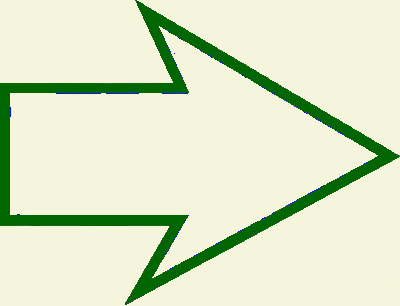 Index
Index 
Idea of "Other" Medical Morality Science (Equilibrium)
I am reading two books, "The Science Delusion" by Curtis White and "Denial" by Ajit Varki, about self-deception or delusion, both words in both subtitles. I recommend both to the alienated mind. However they seem to oppose one another at the usual level where “spirit” meets “material”. The one rightly attacks the righteousness of modern science and the other similarly attacks the imagination as our response to fear of knowledge of our impending death. They both get at the core of my mind. I cannot resolve their dispute, I have not the ken; I suspect no one does, alas I seek the resolution, else why read books. Ecclesiastes 1:2 comes to mind, “Vanity, all is vanity,” but so does the thought, “I love it”. Please don’t ask me what “it” is, or what “love” is, even what “I” am, because I don’t know. I just know I love it, live it, and despise it, contemplate it, and fill it with names. I try to arrange every name along intersecting moral scales, often contradictory. I try to be “objective”, to recognize what “is” beyond my biases. But even “objective” is a word I rate along with “knowing”, “God”, “knowledge”, “delusion”, “deceipt”, “science”, “murder”, “school”, “Mark” (the book of the Bible), “Mark” (my friend), “the blues” (as in depression), “the blues" (as in music, some say music is the Devil, some say God, I say rhythm), and every other action or word. Some say ratings are bad, some say good, some irrelevant, some inescapable, some escapable, some situational, some universal. I have yet to meet the person who is not “seeking”; many seeking other’s wealth or respect, many beauty in the world, themselves, or others, many in nature, many in God, many in teaching others (Bodhisattvas, I wouldn’t know a buddha if I met one, though I may have met several in my life). It seems we rate everything on scales of good to bad, one of Derrida’s binaries. Criteria vary from morality to law to custom, to mathematics, to science, to policy, to common-human-decency; but we rate everything along some good-bad scale. We reserve a place on every scale for “neutral”, often associate with “balance” or “equilibrium” (as “SSRI’s reestablishes “balance” in a patient’s serotonin, as if some chemical balance didn’t exist before the pill. The pill just shifts equilibrium to a new state, i.e. homeostasis; minor soapbox there). “Equilibrium” occurs in most definitions of “balance” and vice versa and most place both “balance or equilibrium” high of the good end of the scale, some would even equate it with God. I think many conservationists believe in “anti-balance” that humans have brought to the “nature.” I sympathize, but believe what God has wrought, what “is”, is good enough and doesn’t need improvement. Many conservationists accept “evangelism” and therefore polemic their cause. I have little doubt that the effects of the last 10,000 years, particularly the last 500 (European ocean crossing) have homogenized the biosphere to a degree not seen since perhaps Paleo-Eocene temperature spike, but even beyond that I think. We created monoculture all over the planet for growing food and timber wherever we can. We have mingled plants, animals, bacteria, and viruses from all over the world; especially the soils let alone the “pretty” or “useful” things that grow in soils and their abundant “hitchhikers”. We have already done such intermixing, THIS is the new equilibrium, the new “balance” of nature. | We also reduced mammalian aggression, at least in term of abundance of species if not in their genomes, by replacing predators with docile grazers like cattle, horses, sheep, pigs, reindeer, and goats; animals who trust us not to kill them so we can raise them, kill them, and eat them. Because everything has a place on many or several different scale of good and bad (e.g. killing another human is bad if not in uniform, good if a soldier). Many add “duty” to nudge things to the “good” end of scales, some add the duty to themselves, many more to others. Why the “duty?” I guess mostly to please the gods, because that's what they want, at least mine. Some of us clever people have opined the way in or out is to deny the reality of the imaginary if not its effects (e.g. skyscrapers and love poems); to deny reality of the scales if not their effect (e.g. jail or conscription). Who is to deny that jails and armies are good for the country, and that without them calamity would overtake society. I deny that. Of course it is imaginary to speculate. I suspect things would be different than today, but most people would still be proud to send their sons to war (oops, sorry girls, you too have won the right to kill other humans for the “good” of county). They say it is good to fight and die for home, country, God, and now common-human-decency. And jails? Need I say more than “Look in the heart of any many and you will find a liar, thief, and murderer. The animal within must be excoriated by punishment if conversion fails (education and law)". Somewhere along the way we, Plato particularly, stumbled upon, invented, or were implanted with the idea that “unreality” is more “real” than “reality” we can sense. It is a reality unavailable to the senses; it is only accessible by the “spirit” or “soul” of humans. It is beyond words, some say beyond thought. So, “I can’t describe it to you, but it’s like nothing you have ever experience before, it’s good --- and you too can have it if you avoid the pit of Hell and ascend through the seven levels of purgation through repentance.” So said Dante. Lao Tzu only the first part. I deny that. I deny that “compassion” or “love” is what sets apart from something else. I deny that is where our unique humanness is to be found. ISTMRN that such a concept has become a distorted exaggeration of maternal instinct. At its core it may be more than that. “I love you, so you must love me in return. Take care of me, comfort me, defend me, hold me close, and together in love and God we can even conjure a devil to defy God’s dictum that “life dies.” So we create a God, an image in our own vanity that denies that one obvious observation. All life dies. ISTMRN that we create a god that denies god. We curse the “real” god, the god that made the world where life dies. We create a god that hears our pleas for mercy, whether to Jesus, or as is more common today, to science. We use both as insurance that the other is untrue, good hedgers that we are. |